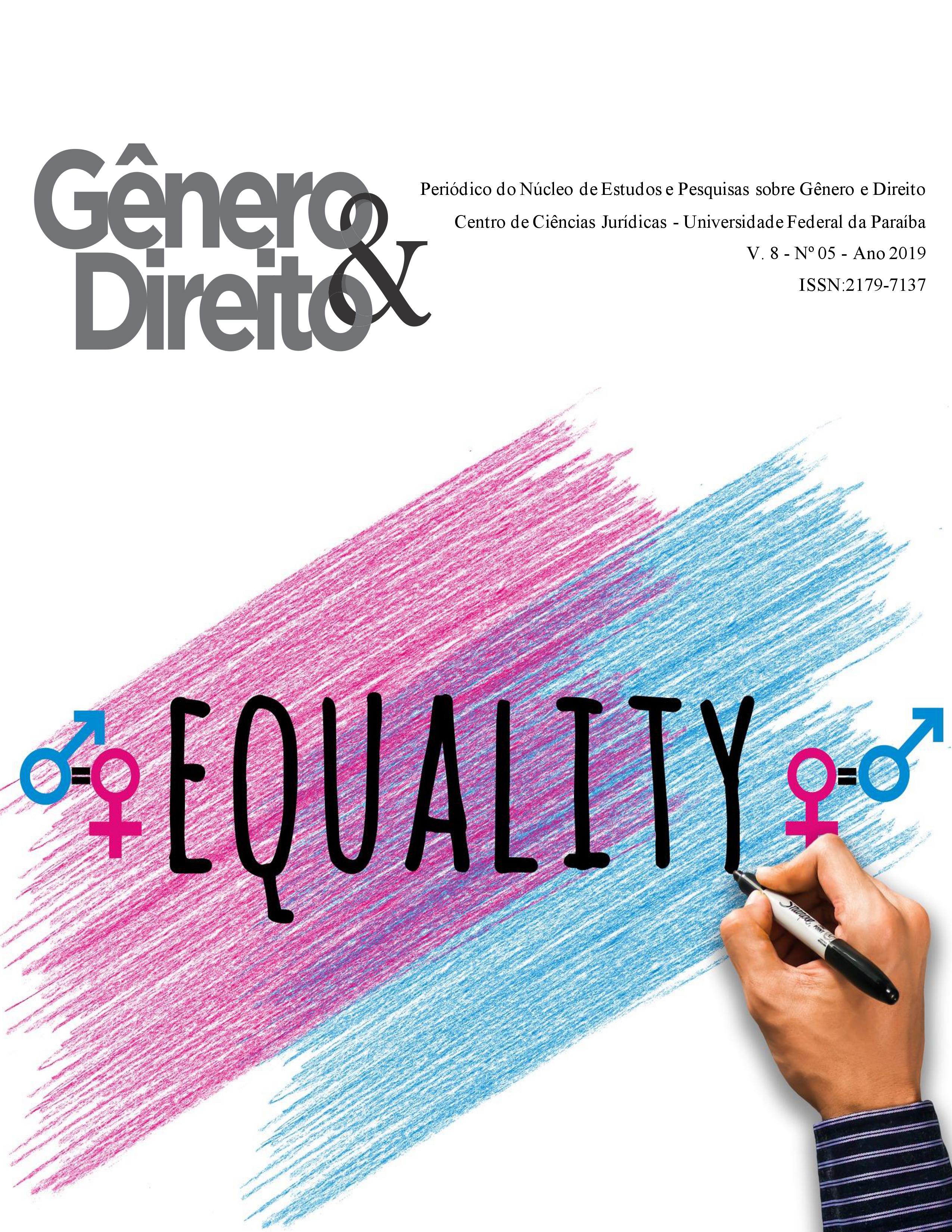PSYCHOLOGICAL MECHANISMS OF STEREOTYPE DEVELOPMENT ON TELEVISION (ON THE EXAMPLE OF THE EUROPEAN MIGRATION CRISIS OF 2015-2016)
DOI:
https://doi.org/10.22478/ufpb.2179-7137.2019v8n5.48641Palavras-chave:
stereotype, stereotype transformation, television, migration crisis, EuropeResumo
This article discusses some mechanisms for the stereotype development on television. It is known that television has much more opportunities and ways of conveying the meaning, and its impact on the audience is more effective than that of the print media. This, in turn, leads to large volumes and depth of representation of various cognitive signs of a stereotype, and a high degree of impact on the television audience. We have used the content analysis to study the news programs of Russian channels "Pervyi Kanal", "Rossiya 24", "NTV". This article presents only some of the conclusions drawn by us. In particular, we drew attention to the fact that the stereotype fixation occurs due to the accumulation of a large volume of certain information. And a stereotype change requires that this information contrasts sharply with the already existing stereotypes. We have traced whether such processes are taking place on Russian television on the example of the European migration crisis. In our opinion, the Russian television has not accumulated sharply contrasting information for the period under study. However, we noticed that information about migrants contained stereotyped settings. At the same time, the cognitive, affective and behavioral components were clearly distinguished in the stereotypes, and the information itself was given dynamically and cyclicallyDownloads
Não há dados estatísticos.
Referências
Akopyan N.A. The Role of Television in Forming the Cultural Stereotypes in Modern Russian Society // Bulletin of the Stavropol State University. No. 64. P. 129 -134.
Kashchuk A.A. Processes of Stereotype Formation with a Television Audience // Humanitarian Scientific Researches. 2016. No. 9 (61). P. 11-14.
Kholler E.V. Stereotype Functionality in the Process of Building Identity: Austrian Case // Siberian Historical Research. 2017. No. 1. P. 74-98.
Dautova R.V, Fatihova M.H., History of the world television: Contribution of Russian scientists and Kazan University // Social Sciences (Pakistan). - 2015. - Vol.10, Is.7. - P.1950-1958.
Andreeva J., Modern paradigms and new strategies of education in journalism//World Applied Sciences Journal. - 2014. - Vol.31, Is.5. - P.781-784.
Vouchenko V.M. Reflection of Gender Stereotypes in Language and Culture // Bulletin of the VolSU. Series 2: Linguistics. 2009. No. 1. P. 64-70.
Chakvetadze L.G, Dautova R.V, Shakurova A.R., Gender stereotypes, mass media and migrants // Journal of Organizational Culture, Communications and Conflict. - 2016. - Vol.20, Is. Special Issue2. - P.39-45.
Cherevko T.S. Image, Stereotype, Reputation - Application Boundaries and Interaction Model // Media Almanac. — 2011. — No. 6. — P. 6–13.
Bratchikova N. S. Stereotype, Precedent Phenomenon and Collective Cultural Identity // Proceedings of the XXXXIII International Philological Conference. - St. Petersburg University Press, St. Petersburg State University, 2003.
Muchnik V.M. The case of Masha Woman. Some Historical Relationship Stereotypes between the Russian Authorities and the Population in the Media Space // Bulletin of the Tomsk State University. History. 2009. No. 2 (6). P. 124-130.
Abdulrakhman F.M. Religious Problem of Adaptation of Muslim Migrants in Germany // ISOM. 2012. No. 4. P. 914-196.
Apanovich M.Yu. Migrant Integration in Europe / / Bulletin of the MGIMO. 2011. No. 6. P. 248-255
Kashchuk A.A. Processes of Stereotype Formation with a Television Audience // Humanitarian Scientific Researches. 2016. No. 9 (61). P. 11-14.
Kholler E.V. Stereotype Functionality in the Process of Building Identity: Austrian Case // Siberian Historical Research. 2017. No. 1. P. 74-98.
Dautova R.V, Fatihova M.H., History of the world television: Contribution of Russian scientists and Kazan University // Social Sciences (Pakistan). - 2015. - Vol.10, Is.7. - P.1950-1958.
Andreeva J., Modern paradigms and new strategies of education in journalism//World Applied Sciences Journal. - 2014. - Vol.31, Is.5. - P.781-784.
Vouchenko V.M. Reflection of Gender Stereotypes in Language and Culture // Bulletin of the VolSU. Series 2: Linguistics. 2009. No. 1. P. 64-70.
Chakvetadze L.G, Dautova R.V, Shakurova A.R., Gender stereotypes, mass media and migrants // Journal of Organizational Culture, Communications and Conflict. - 2016. - Vol.20, Is. Special Issue2. - P.39-45.
Cherevko T.S. Image, Stereotype, Reputation - Application Boundaries and Interaction Model // Media Almanac. — 2011. — No. 6. — P. 6–13.
Bratchikova N. S. Stereotype, Precedent Phenomenon and Collective Cultural Identity // Proceedings of the XXXXIII International Philological Conference. - St. Petersburg University Press, St. Petersburg State University, 2003.
Muchnik V.M. The case of Masha Woman. Some Historical Relationship Stereotypes between the Russian Authorities and the Population in the Media Space // Bulletin of the Tomsk State University. History. 2009. No. 2 (6). P. 124-130.
Abdulrakhman F.M. Religious Problem of Adaptation of Muslim Migrants in Germany // ISOM. 2012. No. 4. P. 914-196.
Apanovich M.Yu. Migrant Integration in Europe / / Bulletin of the MGIMO. 2011. No. 6. P. 248-255
Downloads
Publicado
2019-10-27
Como Citar
SHAKUROVA, A. R. . PSYCHOLOGICAL MECHANISMS OF STEREOTYPE DEVELOPMENT ON TELEVISION (ON THE EXAMPLE OF THE EUROPEAN MIGRATION CRISIS OF 2015-2016). Gênero & Direito, [S. l.], v. 8, n. 5, 2019. DOI: 10.22478/ufpb.2179-7137.2019v8n5.48641. Disponível em: https://periodicos.ufpb.br/index.php/ged/article/view/48641. Acesso em: 26 dez. 2024.
Edição
Seção
Seção Livre

